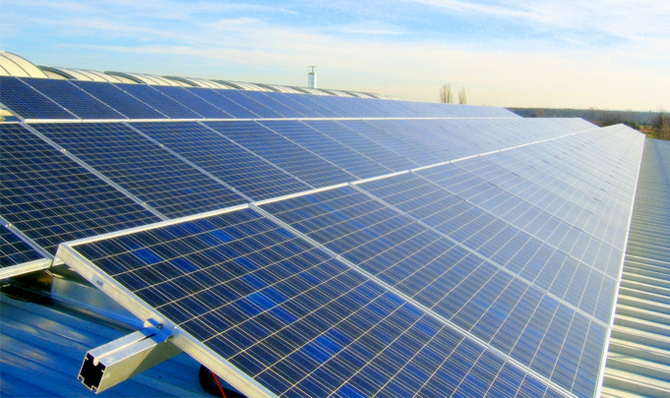
Over a week since the launch of the Government’s consultation on harsh reductions for Renewables Obligation Certificates (ROC) for large scale solar installations, solar installers are warning that this could create 'legal headaches' for the Department of Energy and Climate Change (DECC) which is still suffering the consequences of its solar PV consultations at the end of last year.
“I have no doubt that publishing the true evaluation of the proposed changes for large scale solar installations and solar farms is going to be something the Government wants to put off for as long as possible. It will make unpalatable reading" said Harry Shepherd-Cross, director of Ardenham Energy.
“No impact assessment has yet been provided for this latest proposed policy change, but reference is made to an Arup report anticipating only a tiny fraction of large scale solar projects by 2017. On this basis, DECC’s latest policies are designed to create less than 40% of the 22GW target that it set for 2020.
“The proposed ROC banding review is the sixth major cut or policy change in 18 months, and is made at a time when the solar PV industry is bleeding to death. DECC says it has factored in an investor’s hurdle rate of 7.5%, but by dint of its actions over the last 12 months DECC has knocked investor confidence so much that these rates are simply not available."
"The cost of capital to the whole renewable sector now factors in a complete lack of trust in Government policies, and double digit returns are the minimum requirement for funding as a result. Unfortunately I doubt that will be recognised if and when an impact assessment is made available."
“This consultation must start with an affirmation of the 22GW target and the impact assessment must show how the Feed in Tariff and ROCs between them are going to deliver 22GW. Next, there must be a genuine consultation. Previous consultations have led to very few concessions and none on rates. You would have thought the Government would have learned by now, but failure to carry out a proper consultation will leave DECC wide open to further legal challenges.”
The Solar installer has also written to DECC to make its views known on the likely impact, including points that:
The proposed new rates are an 80% cut compared to the rates enjoyed by the first few solar farms built before the 2011 fast track review, and 25% less than the support for offshore wind.
The proposed cuts to ROCs are based on a seriously flawed view that support for large scale solar projects should be reduced to a rate equivalent to the new 7.1p Feed in Tariff rate for much smaller solar PV systems in the 250kWp to 5MW range. However there has only been one solar PV installation registered at that rate, and that was in April – this indicates the fundamental lack of interest in proceeding with solar projects at such a low level of subsidy. And to make matters worse, the proposed new ROC subsidy is not even equivalent to a Feed in Tariff of 7.1p: it is worth less, is not index linked and the future value of ROCs is uncertain.
If DECC wants to do something practical about improving the economic viability of large scale solar projects, it should first of all look to the Distribution Network Operators which impose huge costs and unnecessary delays on developers.
Solar farms have a typical 12 month development cycle. Clients need to see viability 12 months ahead but yet again this certainty has been squashed. If the cuts come in as proposed it will result in the industry downing tools again as happened in 2011 to the great detriment of green energy generation.
“One cardinal mistake is the old error of linear expectations: the Government assumes costs will continue falling" said Shepherd-Cross.
"But the Chinese panel manufacturers who have lead the extraordinary price reductions in the last few years are now losing money and are in serious trouble. All businesses in the supply chain have seen their margins evaporate. We are scraping the barrel now for any further cost reductions in the medium term, and there are very few economies of scale for large scale solar plants."
“The Government must remember that it encouraged private investment in solar businesses on the basis of subsidies that would be fixed for two years then reduced by 9%. For smaller solar PV systems we have now had a 65% reduction and on larger systems 80%. The sector really can’t take much more of this, and now they have bloodied the investors in this part of the renewable sector they are going to be hard pressed to get these same investors to support their other policy led initiatives.”
